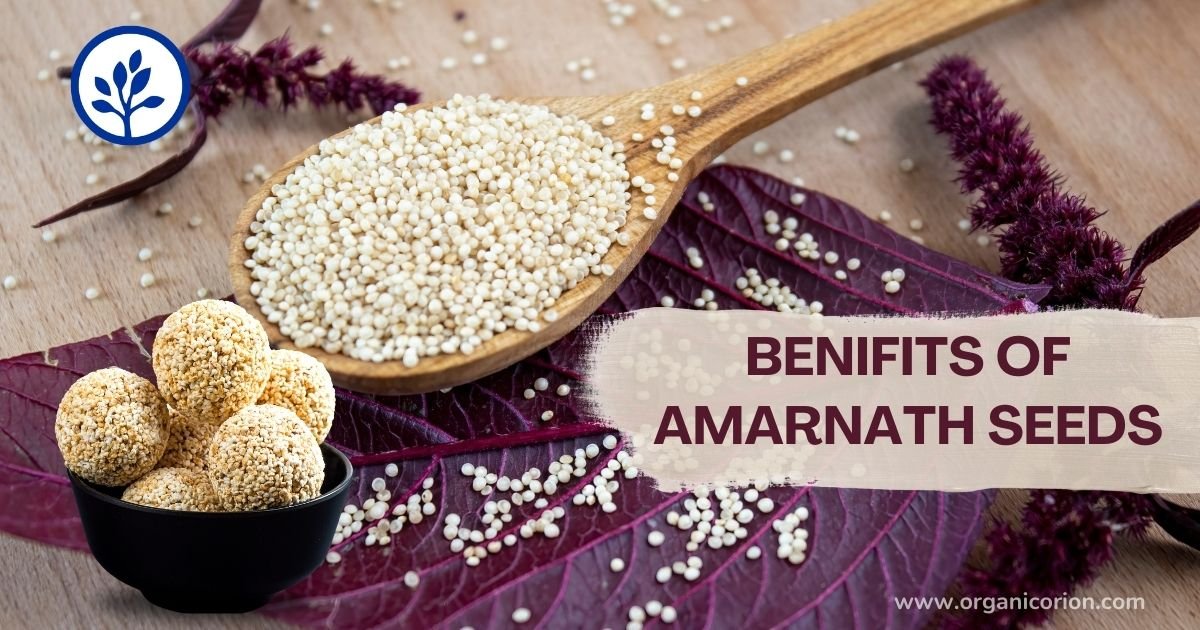Amaranth seeds are gaining popularity due to their health benefits. These seeds are derived from the amaranth plant, cultivated for centuries. This blog explores the origins of amaranth seeds and their nutritional advantages. It delves into the historical cultivation of these seeds and highlights their significance. Discover where amaranth seeds come from and learn about their positive impact on health in this informative blog.
Origin and History:
The word "amaranth" comes from a term that means "unfading." People have been eating amaranth seeds for a very long time because they are good for your health. The seeds have been valued for their nutritional benefits and have a history of being consumed by various cultures across the world. Amaranth is known for its resilience and ability to withstand different conditions, which contributes to its reputation as a hardy and nutritious crop. Over the years, people have recognized the health benefits associated with consuming amaranth seeds, leading to its continued popularity as a wholesome food choice. The enduring appeal of amaranth is rooted in its positive impact on well-being, making it a timeless and beneficial addition to one's diet.
Nutritional Powerhouse:
Despite their small size, amaranth seeds are crucial for health as they are rich in essential nutrients and protein, containing all important amino acids. Additionally, they provide a good dose of fiber, vitamins, and minerals such as iron and magnesium. These tiny seeds may be small, but they pack a punch in terms of supporting your overall well-being by providing a range of vital nutrients that your body needs.
Health Benefits:
1. Complete Protein Source:
Amaranth is exceptional because it provides all the amino acids, making it an excellent protein source for those who don't eat meat, such as vegetarians and vegans. If you're looking for a plant-based protein that gives you everything your body needs, amaranth is a great option!
2. Rich in Fiber:
Amaranth is packed with fiber, which is beneficial for your digestive system. It aids in controlling blood sugar levels, managing weight, and keeping you feeling full throughout the day.
3. Packed with Nutrients:
Amaranth is rich in vitamins and minerals, contributing to energy boost, promoting bone health, and supporting overall well-being.
4. Gluten-Free:
Since it doesn't have gluten, it's a great choice for people who don't eat gluten or have celiac disease.
How can you add amaranth seeds to your meals?
1. Cooked Grain:
You can cook amaranth seeds similar to rice and quinoa. Boil them until they get thick porridge, and then enjoy the nutritious meal.
2. Flour:
Grind amaranth to make flour, and then use it to bake muffins, bread, and more.
3. Porridge or Breakfast Bowl:
Cook amaranth and mix it with dried fruits and fresh fruits for a nutritious and healthy breakfast.
4. Sprinkled on Salads:
Dry some seeds and add them to your salads to enhance your nutrition.
Conclusion:
Incorporating amaranth seeds into your diet offers numerous nutritional benefits. If you're looking for a protein boost and need gluten-free options, amaranth is an excellent choice for promoting a healthy lifestyle. Packed with essential nutrients, these tiny seeds provide a rich source of protein, making them a valuable addition to your meals. Not only are amaranth seeds versatile in cooking, but they also contribute to overall well-being. With their gluten-free nature, amaranth seeds are suitable for individuals with gluten sensitivities. Whether you sprinkle them on salads, mix them into yogurt, or use them in various recipes, amaranth seeds enhance the nutritional profile of your meals. Embracing amaranth as part of your diet is a simple yet impactful way to support your health goals and enjoy the diverse benefits these nutritious seeds bring to your overall well-being.

